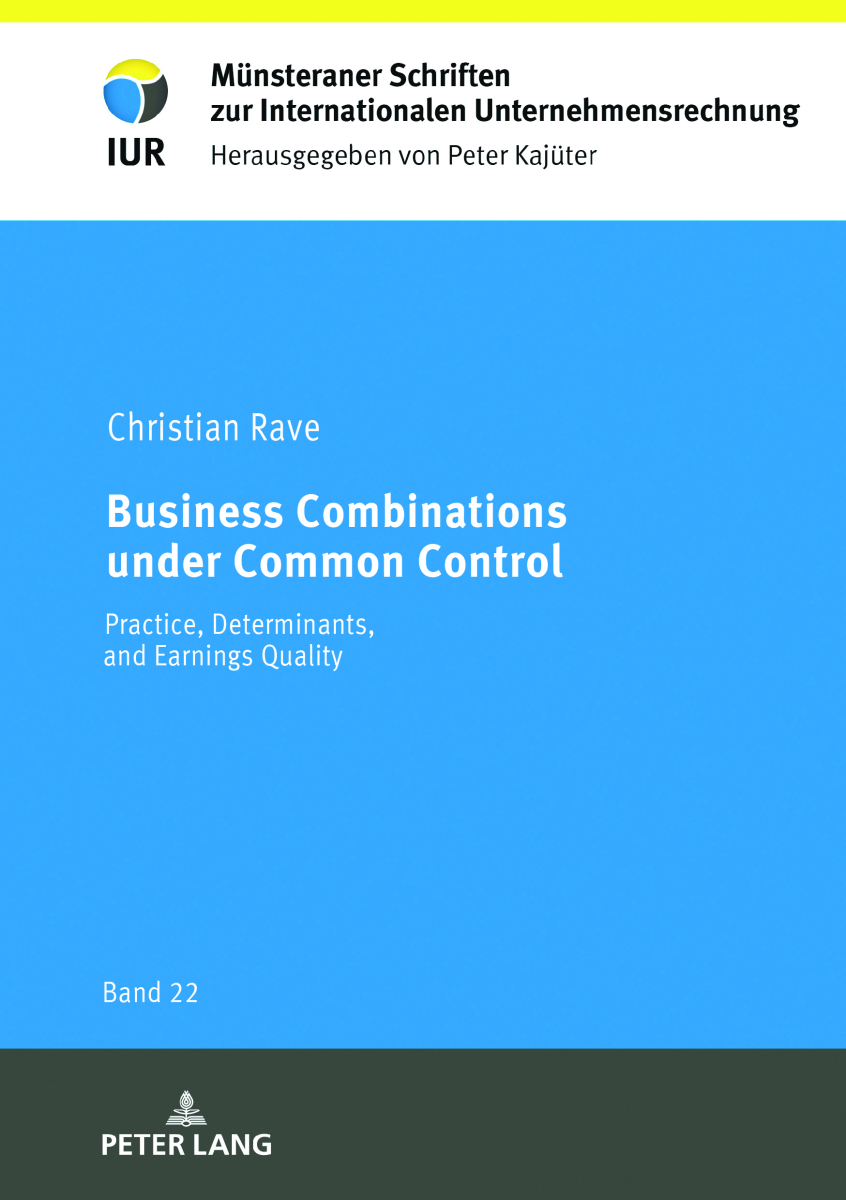Band 22
Christian Rave - Business Combinations under Common Control - Practice, Determinants, and Earnings Quality
 Business combinations are a common phenomenon in response to changing institutional environments. Business combinations can also involve companies that are ultimately controlled by the same party before and after the combination (business combinations under common control, BCUCC). While IFRS 3 specifies the accounting treatment for business combinations between third parties, the standard explicitly excludes accounting for BCUCC from its scope. Due to the gap in IFRS, companies must apply IAS 8 and develop an accounting method. The application of IAS 8 regularly results in two approaches: The acquisition method or the book value method. Although the topic of BCUCC is of high practical relevance, there is only scarce empirical research on this topic so far.
Business combinations are a common phenomenon in response to changing institutional environments. Business combinations can also involve companies that are ultimately controlled by the same party before and after the combination (business combinations under common control, BCUCC). While IFRS 3 specifies the accounting treatment for business combinations between third parties, the standard explicitly excludes accounting for BCUCC from its scope. Due to the gap in IFRS, companies must apply IAS 8 and develop an accounting method. The application of IAS 8 regularly results in two approaches: The acquisition method or the book value method. Although the topic of BCUCC is of high practical relevance, there is only scarce empirical research on this topic so far.
Against this background, this study analyzes the accounting practice of BCUCC, the quality of BCUCC disclosures, the determinants of the accounting method choice and whether or to what extent companies make use of accounting discretion for BCUCC in order to manage or even manipulate earnings. The empirical study is based on a sample of 297 European companies that performed BCUCC between 2005 and 2017.
The results show that 15% of the companies use the acquisition method, 83% the book value method, and 2% do not report any accounting method. Not only do the accounting methods differ between each other (e.g., fair values or book values), but there are also various differences in application within the methods (e.g., line items used for the business combination difference or which book values were used). Furthermore, the analysis of the disclosure quality shows that companies using the acquisition method report significantly more about BCUCC than companies using the book value method. The analysis of the determinants reveals that six of the 14 variables examined are significantly associated with the accounting method chosen: Negative combination difference, firm size, long-term leverage, IPO, ownership concentration, and legal origin. In particular, the determinants negative combination difference and legal origin report the largest probabilities for the accounting method choice. As a consequence of the lacking regulation under IFRS, results indicate that companies use discretion in the accounting methods for BCUCC to manage or even manipulate earnings. Acquirers undertaking BCUCC have lower earnings quality compared to non-BCUCC companies and, thus, tend to affect earnings. In addition, results show that companies using the acquisition method have lower earnings quality than companies using the book value method.
This study contributes to literature in the area of BCUCC. The empirical results have implications for the IASB, users and preparers of financial reports, auditors, and enforcement institutions.


